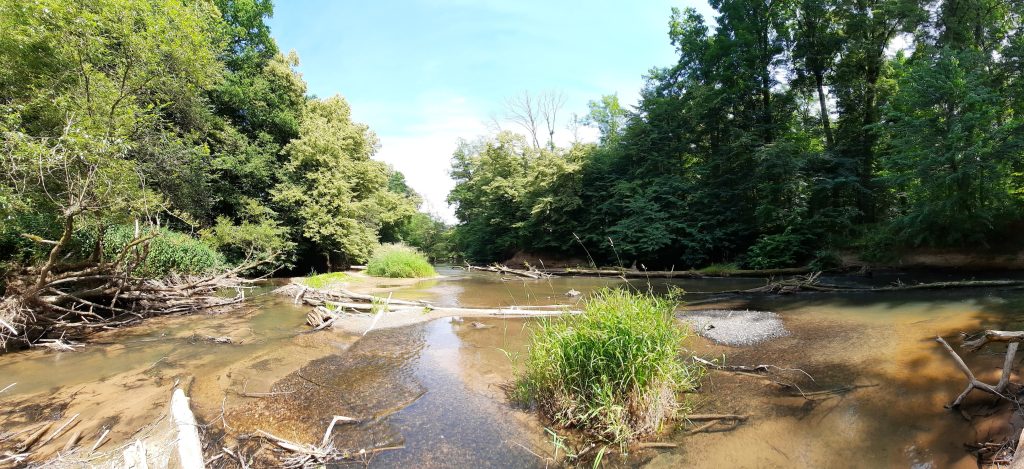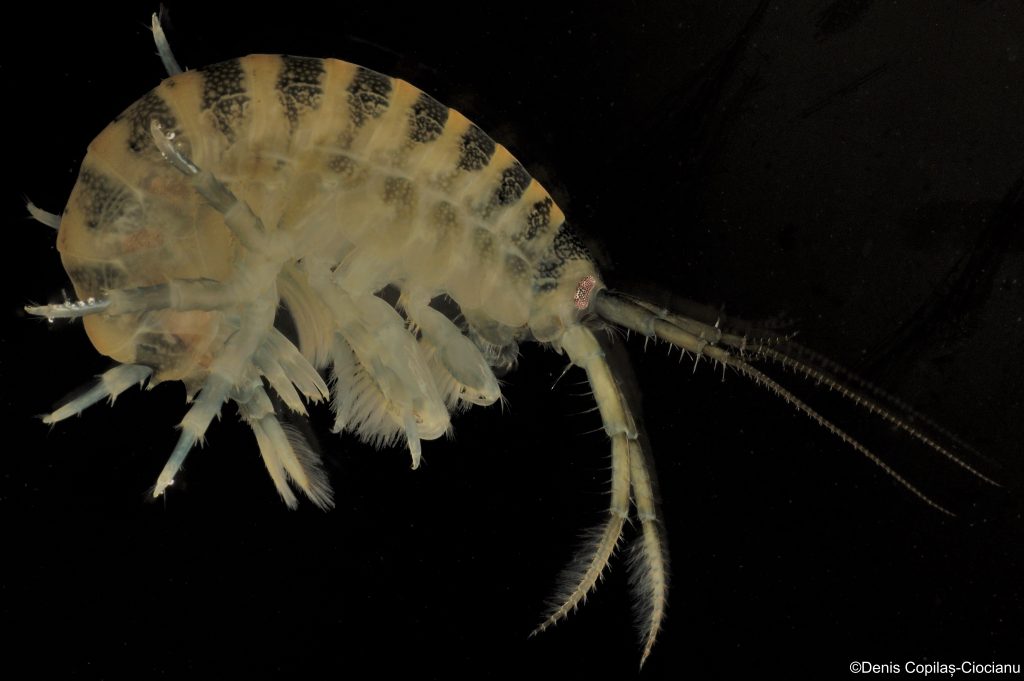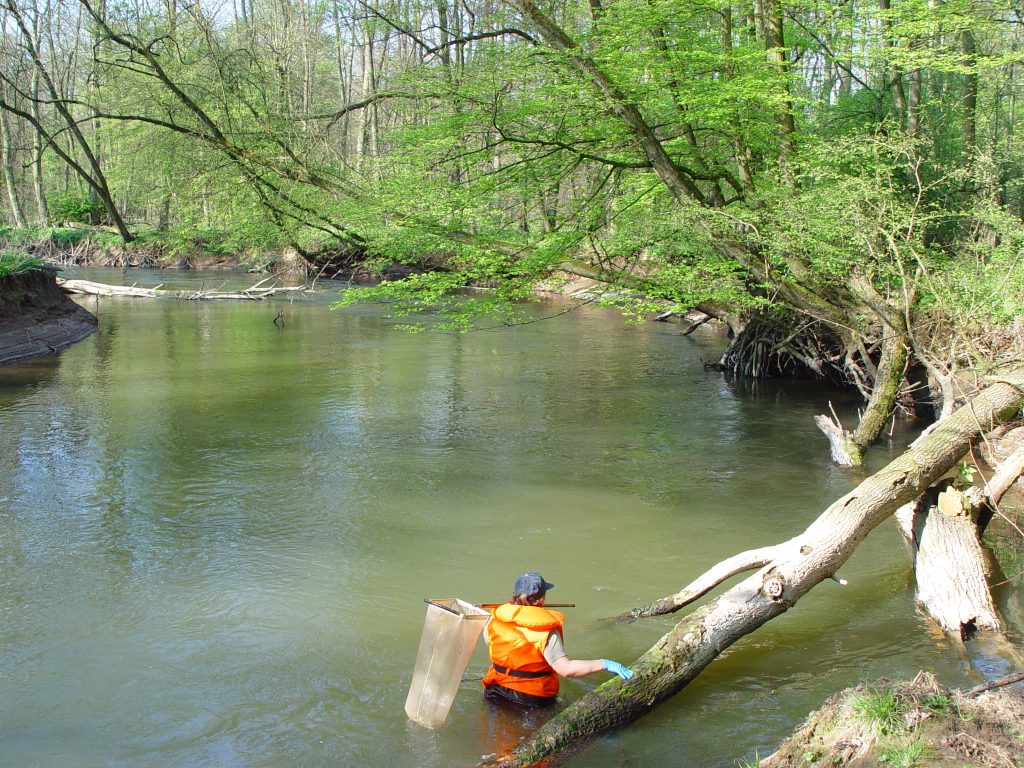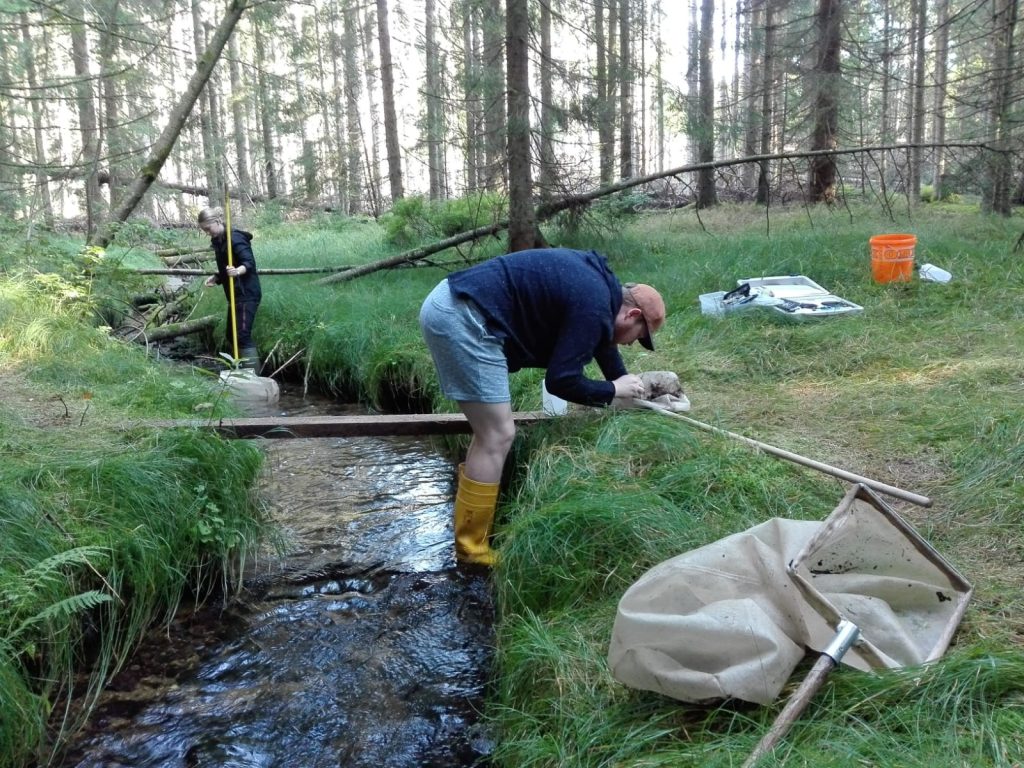After years of improvement, biodiversity in Europe’s freshwaters has stagnated since 2010. This situation has been assessed by an international team of scientists, including for the first time Dr Nathan Baker from the Lithuanian Nature Research Centre. The study aimed to investigate the change in invertebrate biodiversity in freshwaters in 22 European countries between 1968 and 2020. The results of the study are now published in the prestigious journal Nature.
The researchers analysed data from more than 26,000 samples of more than 700,000 invertebrates. The study showed that biodiversity in Europe initially showed a significant increase of almost 1% per year, but this only lasted until 2010, when the recovery of invertebrate populations stalled, and has not improved to date. Scientists are calling on countries to take additional measures to increase biodiversity, as the negative impacts on rivers and lakes from pollution, invasive animals and climate change continue unabated.
“This is a unique study, both because of its size and because it examines not only the diversity of organisms, but also the functions that these different organisms perform. This information will help us in our future attempts to conserve these organisms and to reduce the negative consequences of their extinction, which affect us all,” said Dr Nathan Baker, a scientist at the Nature Research Centre who took part in the study. This is the first time that a Lithuanian Nature Research Centre scientist has taken part in a study of this level, the results of which have been published in the world’s most respected journal in the life sciences community.
Invertebrates – the basis for water quality monitoring
Although invertebrates may seem unimportant or even discouraging, they actually perform very important functions. “They contribute to important ecosystem processes in freshwater bodies. They break down organic matter, filter water and transfer nutrients between water and the terrestrial environment. Such invertebrates have long been the basis for monitoring water quality,” explains the study’s first author, Dr Peter Haase, Professor at the Senckenberg Research Institute and Natural History Museum in Frankfurt.
Pollution, climate change and invasive species are the biggest threats
The most popular invertebrates are mayflies, stoneflies and caddisflies. They have two life phases – aquatic and terrestrial. In their aquatic phase, they are known as larvae. Studying larvae can provide a lot of information about the state of a river’s water – when water quality deteriorates, the diversity of these and other invertebrates decreases, and the ecosystem as a whole suffers. Human activities such as pesticide use, sewage, obstructions and the introduction of invasive animals are the main contributors to the deterioration of inland waters.
Scientists point out that we have been in a similar situation and can learn from it. “In the 1950s and 1960s, the US and the European Union took steps to restore freshwater biodiversity, reducing organic pollution and acidification in the 1980s,” recalls Dr Ellen A.R. Welti, one of the main initiators of the study and a scientist at the Smithsonian Center in the US, who urges us to keep on working and not to give up: “The positive change created by these measures at the time is diminishing as the influence of negative environmental factors increases.”
Invasive invertebrates are replacing native invertebrates in Lithuania
The scientists note that the native biodiversity of rivers is being reduced by the spread of invasive species. “Almost 70% of the sites monitored have invasive species. Invasive species are more likely to be able to adapt to negative factors such as pollution or high temperatures than native fauna,” notes Dr Ellen Welti.
Dr Nathan Baker points out that Lithuanian rivers also contain invasive animals, such as several species of invasive Amphipoda: “some were introduced during the Soviet era to enrich fish food resources. If climate change and its impacts continue to affect Lithuania’s rivers, invasive species will spread, and new ones will appear. Therefore, in addition to pollution and climate change, the spread of invasive animals pose new challenges for biodiversity conservation.”
Proposed measures
The scientists suggest measures such as expanding sewage networks, improving wastewater management, protecting stormwater systems from flooding during heavy rains, more effective separation of micropollutants, reducing the use of fertilisers and pesticides, and building resilience to the damaging effects of flooding.
Lithuania has not yet been included in the study, but Dr Nathan Baker, a researcher at the Nature Research Centre, is currently analyzing the Lithuanian data. “The research will allow us to see trends in biodiversity in Lithuania, interpret the data in a European context, and prevent species loss in the future”. Of all the factors contributing to biodiversity loss, Dr Nathan Baker believes that climate change poses one of the greatest risks in Lithuania: “the impact of climate change on biodiversity is more pronounced in cold regions, putting animals that have adapted to the cold at greater risk”.
The scientists conclude that the measures to combat biodiversity loss should not be the same everywhere. Biodiversity changes are not the same everywhere in Europe, so different measures need to be adapted in places where biodiversity is most at risk, such as the colder regions, which are more affected by climate change. “In the future, biodiversity monitoring should be tightly coupled with the concurrent collection of environmental data. This is the only way we can effectively describe temporal changes within biodiversity, identify environmental drivers and high-risk areas, and maximize biodiversity protection!” concludes Prof. Dr. Haase, the study’s first author.
For more information, see the scientific paper at the link:
https://www.nature.com/articles/s41586-023-06400-1
https://nathan93baker.wixsite.com/nathan-jay-baker



